Melissa Crouse lives in Cape Coral, Florida, surrounded by her 3 children and 9 grandchildren, who are her pride and joy. She spent her career as a middle school orchestra and choir director, but since she retired, she has spent much of her time advocating for increased lung cancer research funding, removing stigma, and raising awareness on the importance of biomarker testing.
She loves spending time with her grandchildren and relaxing by the pool or at the beach.
My diagnosis
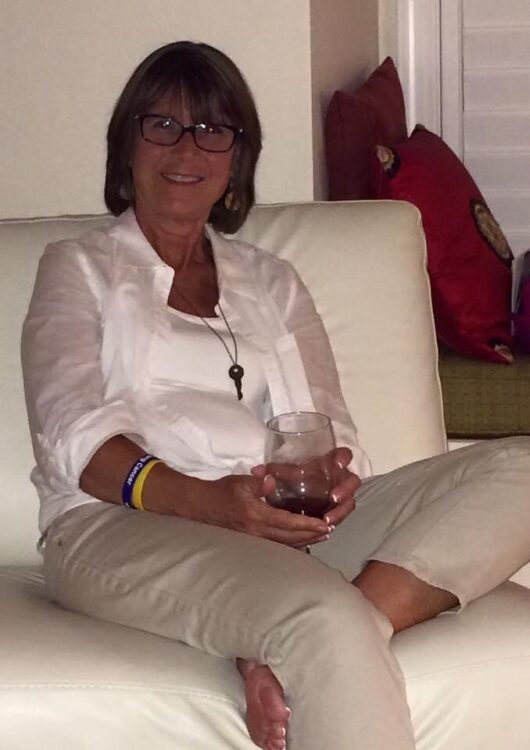 I was diagnosed with lung cancer in 2005 by accident. I was living in Pittsburgh and my youngest child had just started college. My brother kept encouraging me to move to Florida, where he lived. I finally decided to throw caution to the wind and apply for teaching jobs there. I was offered and accepted my dream job – teaching chorus and orchestra at an art school. To take the job, I needed to complete a physical. It was during that physical that I was diagnosed with stage 2A (IIA) non-small cell lung cancer.
I was diagnosed with lung cancer in 2005 by accident. I was living in Pittsburgh and my youngest child had just started college. My brother kept encouraging me to move to Florida, where he lived. I finally decided to throw caution to the wind and apply for teaching jobs there. I was offered and accepted my dream job – teaching chorus and orchestra at an art school. To take the job, I needed to complete a physical. It was during that physical that I was diagnosed with stage 2A (IIA) non-small cell lung cancer.
I was asymptomatic at that point. Thinking back on it, I now realize I was coughing a bit, but it was more like a tickle in my throat. I never dreamed that I could have lung cancer, and when I was told about my diagnosis, it was like I was being hit over the head with a 2×4. Before that, I would have said I was the healthiest I’d ever been in my life.
Treatment
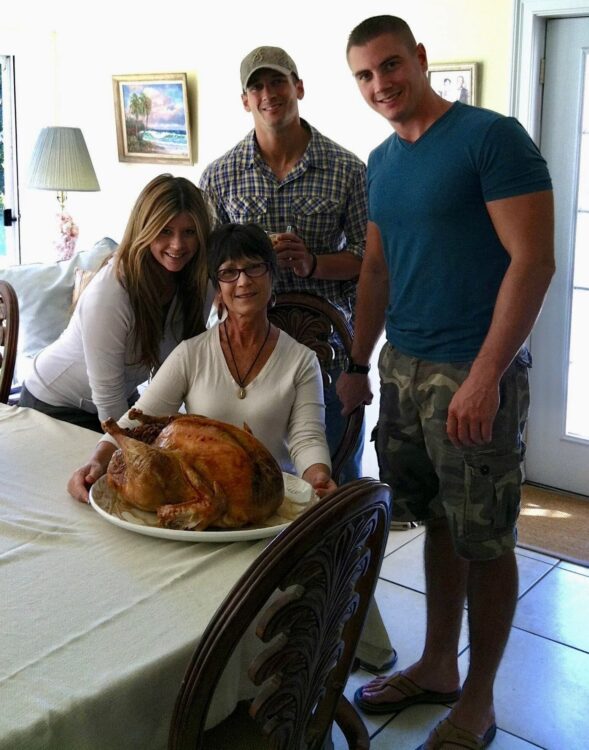 I think I have had nearly every treatment possible for lung cancer over the past 20 years, including 6 clinical trials. I started with surgery and then chemotherapy. When I was diagnosed, there was basically no biomarker testing available yet. Testing for EGFR had just started, so chemo was my only choice at first. I had no evidence of disease (NED) for 3 years before we discovered that the cancer had spread to my liver, which is where it still lives today.
I think I have had nearly every treatment possible for lung cancer over the past 20 years, including 6 clinical trials. I started with surgery and then chemotherapy. When I was diagnosed, there was basically no biomarker testing available yet. Testing for EGFR had just started, so chemo was my only choice at first. I had no evidence of disease (NED) for 3 years before we discovered that the cancer had spread to my liver, which is where it still lives today.
Over the years, I’ve had numerous progressions, and every time we thought we were at a dead end, a new treatment or a new trial became available to try. Once I even took a targeted therapy meant for another mutation just to see if it would work for me. I have been willing to try anything.
In 2012, I got a phone call from my doctor, who was very excited to tell me that I had the RET mutation. It had just been identified, and even though a targeted therapy wasn’t available until 2017, knowing that I had RET meant that I had hope. I went on that first targeted therapy for RET, Retevmo (selpercatinib), as soon as I was able, and I’m still on it today.
My doctors and I are watching another possible progression right now and we’re not sure what we’ll do if I need treatment. I’ve had a good run but that doesn’t mean I don’t want more time. More research is always being done and I hope there will be something else in the pipeline when I need it.
Accepting my new reality
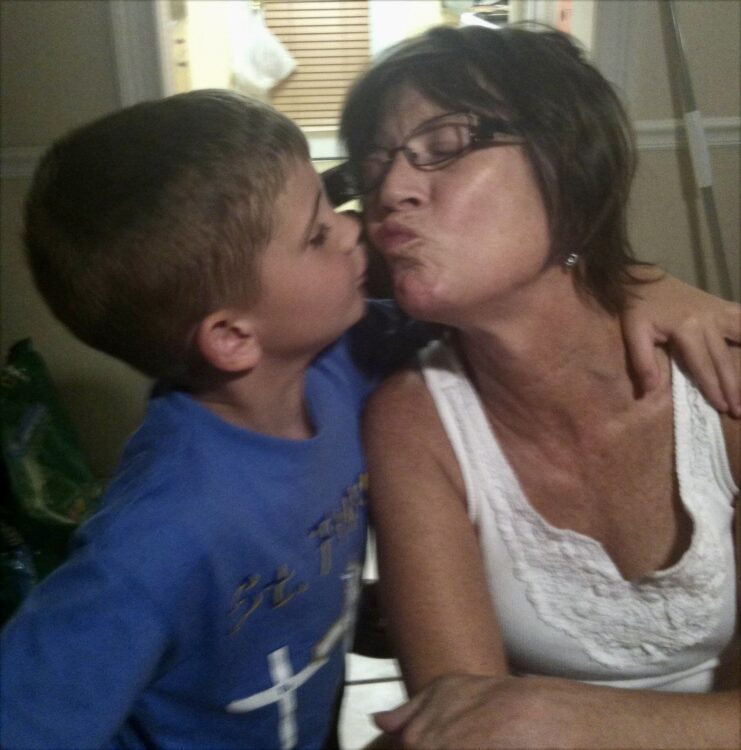 After my diagnosis, I went through all the stages of grief—anger, denial, everything. I was pretty weepy for a while because I thought I’d never see my kids get married or meet my grandkids. It took me a long time to reach the acceptance stage, but when I did, I felt the biggest weight lift off my shoulders. Once I let go of trying to control everything, I found that I could relax and stop worrying so much. It was so freeing to say, “What will be, will be. I’d rather enjoy my days.” I’m proud to share that I’ve seen my kids get married and now have 9 grandchildren.
After my diagnosis, I went through all the stages of grief—anger, denial, everything. I was pretty weepy for a while because I thought I’d never see my kids get married or meet my grandkids. It took me a long time to reach the acceptance stage, but when I did, I felt the biggest weight lift off my shoulders. Once I let go of trying to control everything, I found that I could relax and stop worrying so much. It was so freeing to say, “What will be, will be. I’d rather enjoy my days.” I’m proud to share that I’ve seen my kids get married and now have 9 grandchildren.
Learning more about the disease also helped me understand it better, specifically, the fact that my lung cancer will likely progress. I realized a treatment would not work forever. Understanding and acknowledging what would likely happen allowed me to move on to new treatments more quickly and easily over the years without always having to work through too many feelings of anger or grief again.
Getting involved
I think the teacher in me was what initially drove me to get more involved in lung cancer advocacy. Then, the longer I lived, the more I wanted to be part of the conversation. In addition to serving on multiple advisory boards, including for the Lung Cancer Research Program (LCRP) with the Department of Defense (DOD) and the Federal Drug Administration (FDA), I started a lung cancer support group in Florida. I saw that there was a great need for more lung cancer support groups and even though it was hard to get started, it’s become a very active group. We meet once a month and always have a speaker who presents on a relevant topic. The group is a positive thing in my life and I know it is for the other group members too.
Two decades of lung cancer
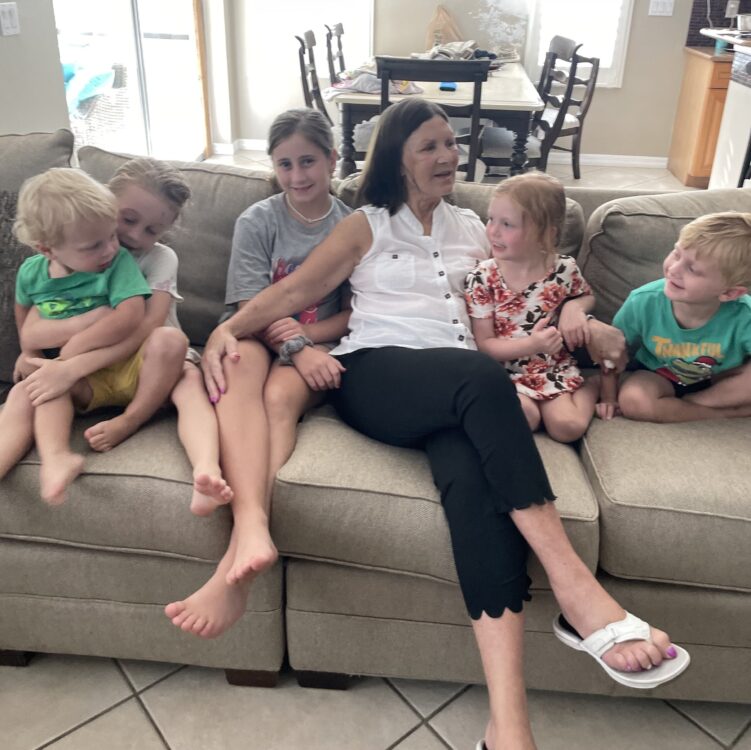 You can’t help but notice all the progress that has been made when you’ve been living with lung cancer for as long as I have. The momentum has been very encouraging. Treatments were flatlined for so long, but then all of a sudden, more researchers started to get involved, and more new therapies were identified. Lung cancer started so far behind everything else, but it does feel like with continued investment in research, we might just catch up.
You can’t help but notice all the progress that has been made when you’ve been living with lung cancer for as long as I have. The momentum has been very encouraging. Treatments were flatlined for so long, but then all of a sudden, more researchers started to get involved, and more new therapies were identified. Lung cancer started so far behind everything else, but it does feel like with continued investment in research, we might just catch up.
There are also devastating parts of living with lung cancer for so long. I have been very active and involved in the lung cancer community, and I have formed so many deep and lasting friendships with other people that you meet at conferences and trips, or even online. The nature of the disease is that we’re not all going to make it. The longer I live in this community, the more friends I lose. It’s been heartbreaking and I suffer from survivor’s guilt. I have had many very close friends die, and it’s impossible not to think, “Why them and not me?” No part of this disease is fair.
I also suffer from some lingering side effects of all the treatments I’ve been on. Some of them have really taken a toll on me. I have neuropathy in my fingers and feet, and lately, I’ve been retaining fluid. I have tried to ignore these inconveniences because they mean that I am being treated and that I am still alive. That doesn’t mean that they don’t erode your quality of life. I hope that as more of us live for a long time in treatment for lung cancer, doctors and researchers will consider side effects and how to better address them.
Advice for others with lung cancer
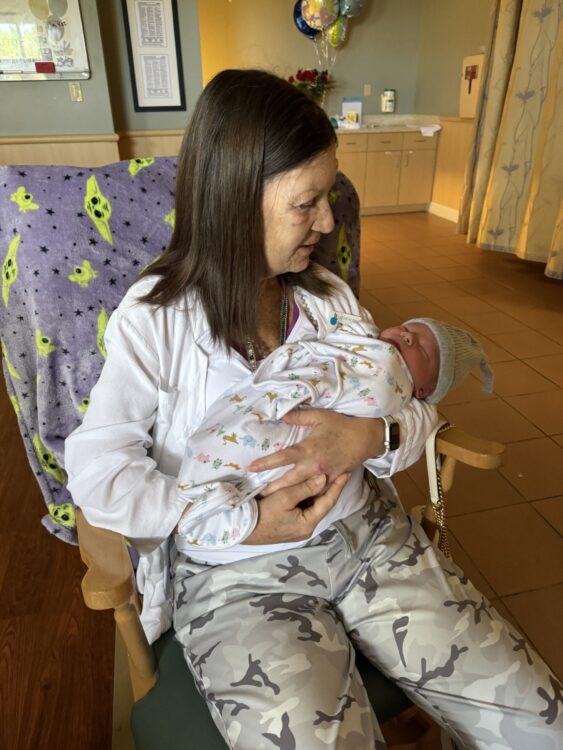 The first thing I always tell people is to see a lung cancer specialist. Our local oncologists are wonderful, but we can’t expect them to be experts in every type of cancer, especially when lung cancer evolves so quickly. A lung cancer specialist can manage your care according to the latest treatments and best practices available today.
The first thing I always tell people is to see a lung cancer specialist. Our local oncologists are wonderful, but we can’t expect them to be experts in every type of cancer, especially when lung cancer evolves so quickly. A lung cancer specialist can manage your care according to the latest treatments and best practices available today.
I also encourage everyone to seek a second opinion. You must be comfortable with your care team and your care plan, and you must learn to follow your instincts. If you don’t feel 100% comfortable with your doctor and want to know how someone else would approach your care, there is absolutely nothing wrong with talking to another oncologist. In fact, good doctors will encourage you to get a second opinion. They want you to have confidence in them too.

Hi Melissa – I am Karen Arscott and I was diagnosed with stage IA in December 2005. Initially surgery was deemed a “cure” – but I had a mediastinal recurrence in May 2007. After much treatment and a few scares requiring biopsies I am now 19 years out and doing well. It has been a journey of heartache watching friends I have met along the way pass on. I have been to the Hill for advocacy work, worked with the FDA, and was on the Integration Panel for LCRP with the DOD – wonder if we met at some point. Just wanted to reach out to a fellow long term survivor! Thank you for sharing your story!
Karen
Hello Melissa,
I recognize only too well that “strain” of Lung Cancer – it killed my wife three years ago.
As soon as my wife had been diagnosed wth Lung Cancer, 29th August 2011, we began actively supporting the Lung Foundation of Australia, by raising money for research into Lung Cancer. After my wife died, January 21, 2022 I continued to campaign for the Lung Foundation of Australia, including the formation of a Scholarship in her name.
For as long as I am physically able, I will comntinue to support the Lung Foundation of Australia in this way.
Richard Irving
https://fundraise.lungfoundation.com.au/fundraisers/rickirving
Hi Richard,
Thanks for your post. We are so sorry to hear of your wife’s experience with lung cancer. It is so good to hear that you support Lung Foundation Australia.
GO2 for Lung Cancer and LFA are both members of the Global Lung Cancer Coalition https://www.lungcancercoalition.org/ and so we know what terrific work they do.